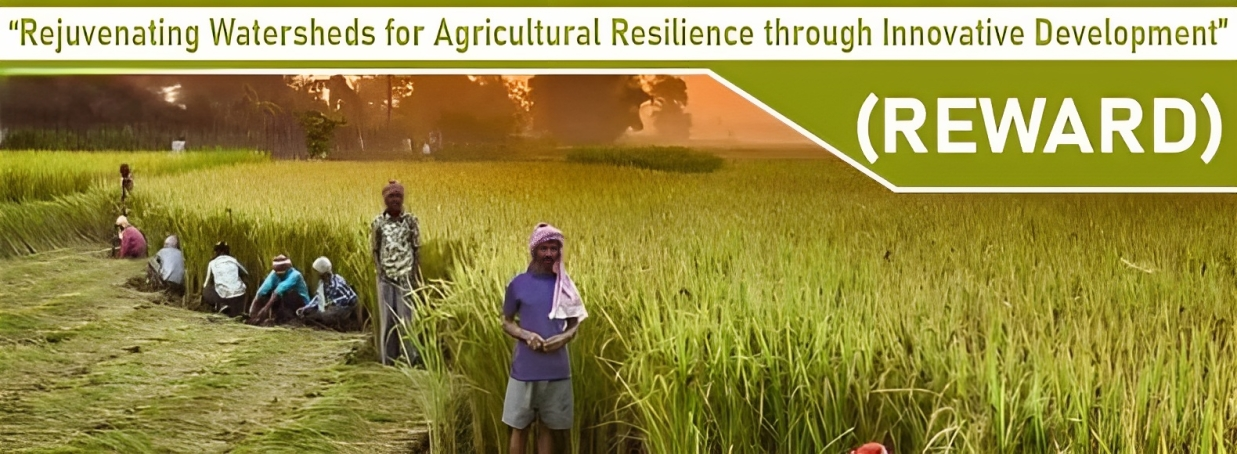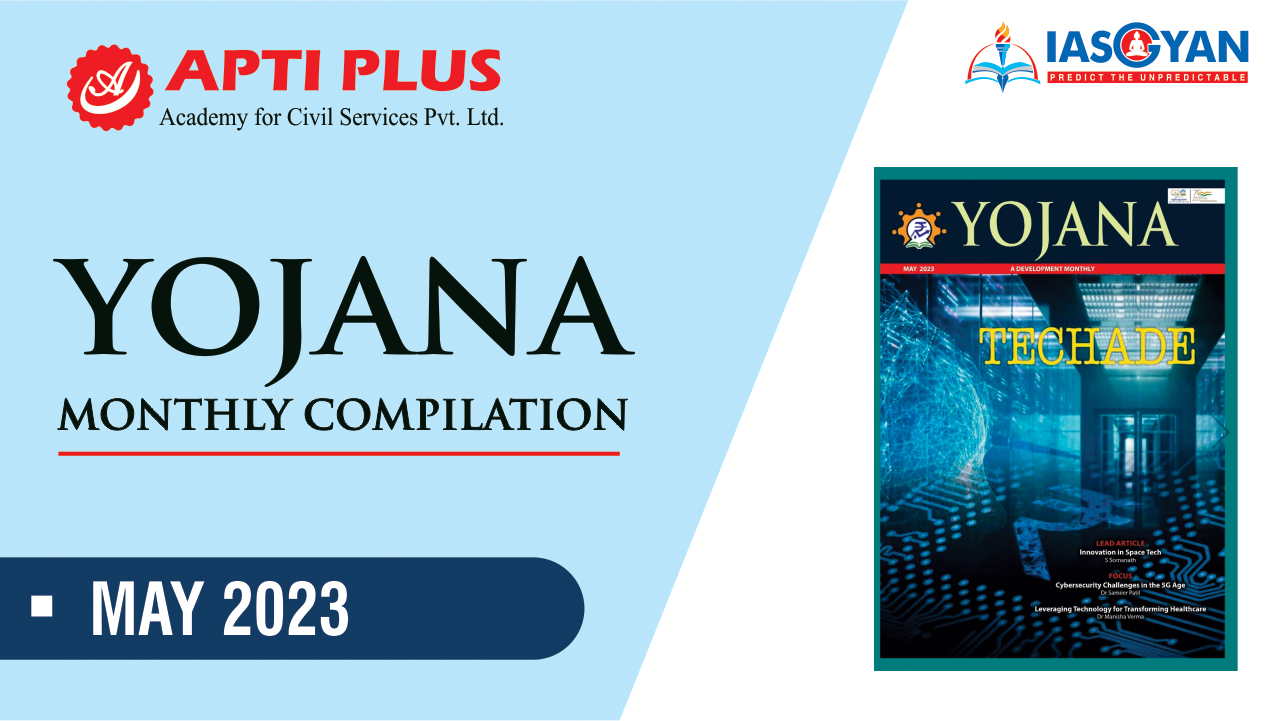
Copyright infringement not intended
Context: The Secretary of the Department of Land Resources (DoLR) reviewed the Implementation of the World Bank Assisted Rejuvenating Watersheds for Agricultural Resilience through Innovative Development (REWARD) program.
Details
- The REWARD program is a joint initiative of the Department of Land Resources (DoLR) under the Ministry of Rural Development and the World Bank to enhance the resilience and productivity of rainfed agriculture in selected watersheds of India.
- The program aims to adopt an integrated watershed management approach that combines biophysical interventions, institutional strengthening, and livelihood support for rural communities.
- The program is being implemented in Karnataka and Odisha and more states to be decided later. The program is expected to help farmers become more resilient to climate change, improve incomes, and promote higher productivity.
|
Watersheds
● Watersheds are areas of land that drain water into a common outlet, such as a river, lake, or ocean. They provide vital ecosystem services, such as water supply, soil fertility, biodiversity, and climate regulation.
● Many watersheds in India are degraded due to unsustainable land use practices, such as overgrazing, deforestation, and soil erosion. This affects the productivity and resilience of agriculture, which is the main source of income and food security for millions of people.
|
The main components of the program are:
Strengthening watershed institutions and governance
- The program supports the formation and capacity building of watershed committees, user groups, self-help groups, and other local institutions that are responsible for planning, implementing, and monitoring watershed activities.
- The program also promotes convergence and coordination among different stakeholders, such as government agencies, NGOs, research institutions, and private sector actors.
Implementing watershed interventions
- The program finances various watershed interventions that aim to enhance natural resource management and agricultural productivity. These include;
- Soil and water conservation measures, such as contour bunds, check dams, farm ponds, and terraces.
- Agroforestry and horticulture plantations.
- Pasture development and livestock management.
- Crop diversification and intensification
- Irrigation and water harvesting systems
- Climate-smart technologies and practices

Enhancing livelihood opportunities
- The program supports the development of value chains and market linkages for watershed products and services. This includes providing access to credit, inputs, extension services, processing facilities, storage infrastructure, and market information.
- The program also facilitates the participation of women and marginalized groups in income-generating activities and decision-making processes.
Monitoring and evaluation
- The program establishes a robust monitoring and evaluation system that tracks the progress and impact of watershed interventions on various indicators, such as land use change, soil health, water availability, crop yield, income level, gender equality, and climate resilience.
- The program also uses innovative tools and methods, such as remote sensing, GIS mapping, mobile applications, and citizen science.
The REWARD program is expected to generate multiple benefits for the environment and society. Some of these benefits are:
Improved water security
- The program will increase the availability and quality of water for domestic and agricultural use by enhancing groundwater recharge, reducing runoff and soil erosion, and preventing pollution.
Enhanced soil health
- The program will improve soil fertility and structure by increasing organic matter content, reducing nutrient loss, and preventing salinization and acidification.
Increased biodiversity
- The program will conserve and restore native flora and fauna by creating habitats, corridors, and buffer zones; reducing human-wildlife conflict; and promoting sustainable harvesting practices.
Reduced greenhouse gas emissions
- The program will mitigate climate change by sequestering carbon in vegetation and soil; reducing deforestation and land degradation; and promoting low-carbon technologies and practices.
Increased agricultural productivity
- The program will boost crop yield and quality by improving soil moisture retention; reducing pest infestation; increasing nutrient availability; diversifying cropping systems; enhancing irrigation efficiency; introducing improved seeds; adopting climate-smart technologies; etc.
Increased income generation
- The program will create livelihood opportunities by improving access to markets; increasing value addition; reducing post-harvest losses; enhancing skills development; providing credit facilities; etc.
Significances
- It supports the country's efforts to address climate change and environmental degradation by promoting sustainable land and water management practices.
- It contributes to enhancing food security and income generation for rural communities by improving agricultural productivity and diversification.
- It fosters social inclusion and gender equality by empowering women and marginalized groups to participate in watershed planning and decision-making.
The program also faces some challenges in its implementation
- Ensuring effective coordination and convergence among various stakeholders at different levels.
- Addressing the trade-offs and conflicts that may arise from competing land uses and interests.
- Scaling up successful watershed interventions and innovations to larger areas and contexts.
- Ensuring adequate financial and human resources for long-term watershed management.
Ways forward
- Strengthening the institutional and policy framework for watershed management at national, state and local levels,
- Enhancing capacity building and knowledge sharing among watershed practitioners and beneficiaries.
- Promoting participatory and adaptive watershed planning and implementation.
- Establishing robust monitoring and evaluation systems to track the progress and impact of the program.
Conclusion
- The REWARD program is a significant initiative that will introduce modern watershed practices in India and synergize with the broader perspective of the Watershed Development Component of Pradhan Mantri Krishi Sinchayee Yojana (WDC-PMKSY) 2.0. The program will also contribute to the Sustainable Development Goals (SDGs) related to poverty reduction, food security, water management, and climate action.
Must Read Articles:
REWARD Project: https://www.iasgyan.in/daily-current-affairs/reward-project
|
PRACTICE QUESTION
Q. Which of the following activities is/are supported by the REWARD project under the watershed planning and implementation component?
1. Preparation of watershed development plans based on scientific assessment and community consultation.
2. Implementation of soil and water conservation measures such as contour bunds, check dams, farm ponds, etc.
3. Promotion of climate-smart agriculture practices such as crop diversification, integrated nutrient management, drip irrigation, etc.
How many of the above statements are correct?
A) Only 1
B) Only 2
C) Only 3
D) All
Answer: D
Explanation:
The REWARD project will support various activities under watershed planning and implementation components. These include the preparation of watershed development plans based on scientific assessment and community consultation; implementation of soil and water conservation measures such as contour bunds, check dams, farm ponds, etc.; promotion of climate-smart agriculture practices such as crop diversification, integrated nutrient management, drip irrigation, etc.; facilitation of access to value chain services such as input supply, market linkages, processing, etc.; formation and strengthening of community institutions such as common interest groups (CIGs), farmers' producer organizations (FPOs), etc.
|

https://pib.gov.in/PressReleasePage.aspx?PRID=1927669




